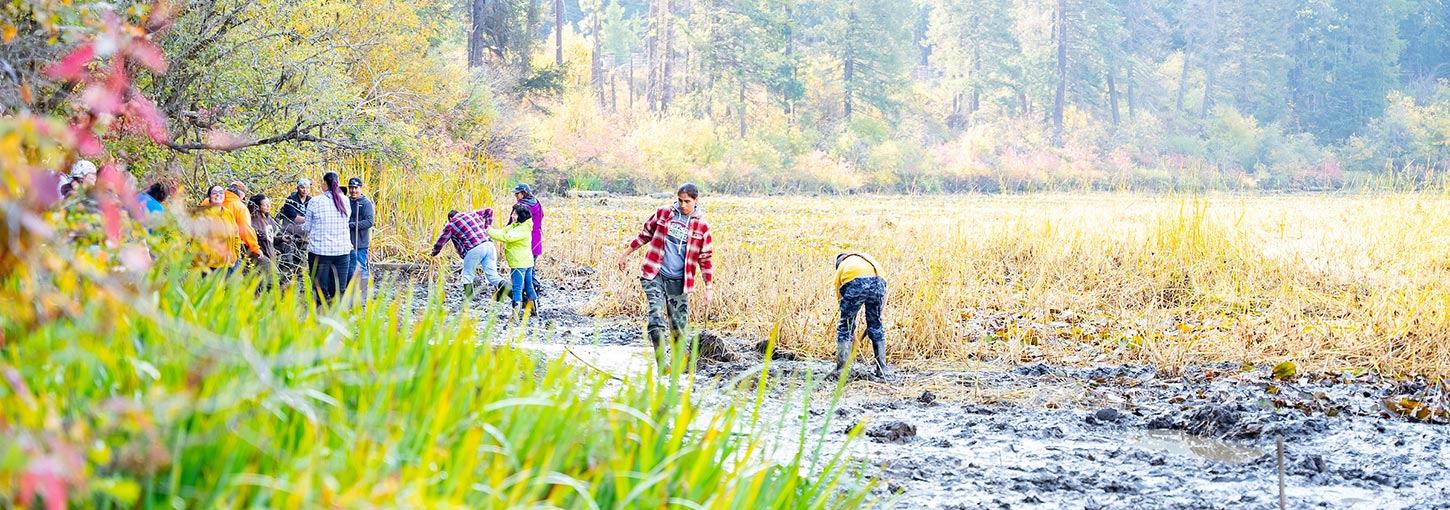Sustainability Access & Integrity
Land Acknowledgement Statement
Campus: University of Idaho Moscow is located on the homelands of the Nimiipuu (Nez Perce), Palus (Palouse) and Schitsu’umsh (Coeur d’Alene) tribes. We extend gratitude to the indigenous people that call this place home, since time immemorial. U of I recognizes that it is our academic responsibility to build relationships with the indigenous people to ensure integrity of tribal voices.
Access and Integrity in Sustainability
Access and integrity are important pieces of sustainability. While protecting and restoring the environment is a central tenant, it is equally important to care for each other and create spaces where everyone is welcome and able to enjoy natural spaces.
Being a sustainable institution, U of I strives to give everyone in our community equal access to a healthy, safe and prosperous environment. This means equal access to food, housing, academic opportunities, employment opportunities and healthcare. Part of our sustainability commitment is to provide students and employees access to support programs. Everyone deserves to enjoy the benefits of clean water, clean air and green space\ and everyone deserves to have a voice in the sustainable development of our university.
- Vandal Food Pantry
- Bruce & Kathy Pitman Emergency Fund Application
- Vandal Health Education
- Academic Support Programs for First generation, disabled or low-income students
- VandalCARE Referral
- A VandalCARE Referral can be submitted for students, staff or faculty who may be in distress or experiencing hardship, including food and housing insecurity. Once the referral is filed, the CARE team will provide support, resources and most of all, care and concern for those who need it. Referrals can be filed anonymously. The CARE team does not disclose who filed the referral when meeting with a person of concern.
Why Is This Important?
Access and integrity in sustainability gives marginalized communities the ability to enjoy clean, healthy environments and participate in the creation of sustainable solutions. Promoting access to environmental benefits means fair treatment and meaningful inclusion of all people. This is achieved when everyone enjoys the same degree of protection from environmental and health hazards, is able to partake in decision-making processes and enjoys the benefits of healthy environments in which to live, learn and work.
Ways You Can Help
Providing access and leading with integrity in our sustainable solutions includes centering the voices of people who are who are most impacted by environmental harms. It is critical that all Vandals understand how environmental degradation impacts our community in different ways and that our sustainable solutions should include everyone.
Work to educate yourself and others about environmental access and integrity and promote inclusion in sustainable solution conversations and implementation. You can also donate time or funds to support local organizations that elevate the voices of impacted communities.








